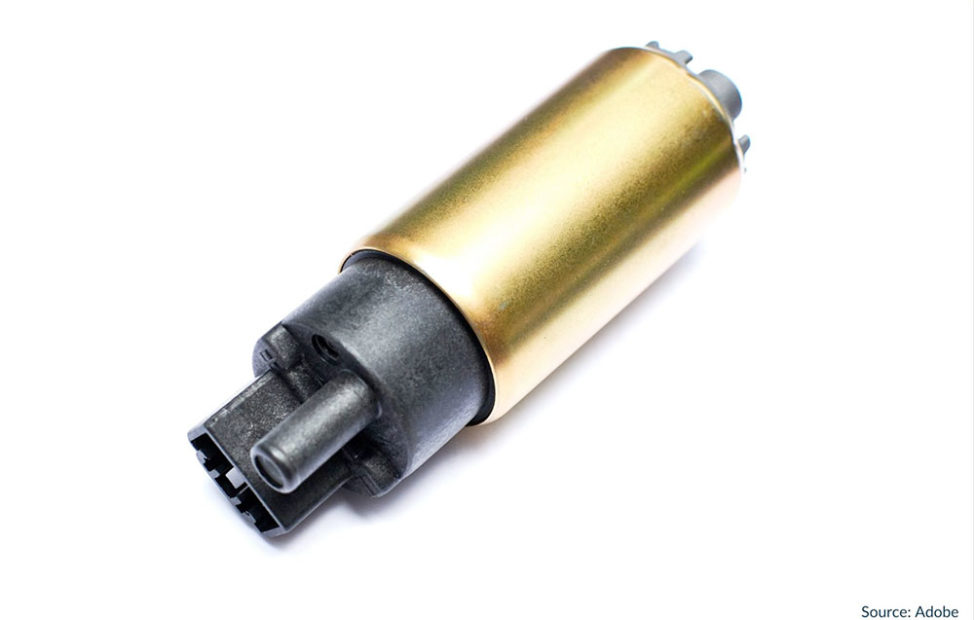Defective fuel pumps are causing the 2020-2024 Chevrolet Equinox and GMC Terrain SUVs to hesitate, sputter and lose power while driving, according to a new class action lawsuit.
The Chevy Equinox and GMC Terrain fuel pump lawsuit alleges that a defect in the fuel pump or the fuel pump power control module interrupts the flow of fuel from the gas tank to the engine. The GM fuel pump defect causes the following symptoms:
- Ticking noises
- Hesitation
- Stalling
- Bucking
- Decreased engine performance
- Worsened fuel economy
- Partial or complete loss of motive power
- Inability to restart the engine
The fuel pump and fuel pump power control module are expected to last as long as the vehicle itself: between 150,000 and 200,000 miles. According to Kerr et al. v. General Motors LLC, the fuel pumps and control modules often fail before reaching 100,000 miles. Replacement fuel pumps or modules could cost anywhere from $1,200 to $2,000.
As early as 2019, General Motors allegedly knew of the GM fuel pump defect and has yet to provide sufficient repairs or replacements for the faulty parts. As a result, affected drivers continue to experience recurring defects caused by these faulty fuel pumps, which cause internal damage to the engine and other components when left unfixed.
GM Faulty Fuel Pump Incidents
The class action lawsuit was brought forth after plaintiffs Greg and Twila Kerr and Robert Knowles experienced recurring issues with their 2021 Chevrolet Equinox and their 2023 GMC Terrain, respectively.
The Kerrs purchased a pre-owned 2021 Chevrolet Equinox in October 2022 with roughly 32,000 miles on it and properly maintained their vehicle according to GM’s recommended maintenance schedule. When the vehicle reached 40,000 miles around March 2023, the Kerrs noticed that their Chevrolet Equinox suffered an inability to start.
When Greg Kerr contacted his dealership, he was told there was nothing the dealership could do until the vehicle died completely. The Kerrs contacted a different dealership for a replacement pump, only to be told that replacement parts were out of stock. The dealership confirmed that General Motors had recurring issues with the fuel pumps. The Kerrs bought a replacement pump from an independent supplier and repaired the car themselves. Their vehicle problems were resolved temporarily.
Knowles purchased a new 2023 GMC Terrain in May 2023. Three months in with only 5,500 miles on the odometer, the GMC Terrain began experiencing defects such as engine hesitation, stalling, and unusual noises. Knowles brought his vehicle to a dealership, where the technicians purported to have repaired the vehicle.
By October, the problems resurfaced, so he returned to the dealership. The dealership purported to repair the vehicle, but the vehicle issues remained. Knowles brought the vehicle to the dealership in March 2024 with 44,000 miles on the odometer. The dealership confirmed that the issues were caused by the fuel pump, but did not repair the vehicle.
Greg and Twila Kerr and Robert Knowles are still waiting for notification from General Motors regarding a permanent repair.
How GM Faulty Fuel Pumps Work
The key components to keeping the engine properly fueled are the fuel pump, the fuel pump control module, and the engine control module. The fuel pump, made by GM subsidiary AC Delco, draws the fuel up from the tank and sends it down to the engine via a fuel line. While doing so, it pressurizes the fuel to a set limit.
The fuel pump control module sets the pressure limit for the fuel. It also electronically controls the fuel pump and communicates with the engine control module. When instructed by the engine control module, it sends an appropriate amount of voltage to the fuel pump so that the pump can draw fuel from the tank to the engine.
The engine control module operates and controls the engine. When the vehicle starts, the engine control module tells the fuel pump control module to start the fuel pump’s operation. It also continually communicates the engine’s fuel flow needs to the fuel pump control module.
The GM fuel pump defect can interrupt the flow of gas from the tank to the engine. This can result in stalling, loss of motive power and engine failure while driving. The fuel pump defect can also cause issues such as hesitation, sputtering, engine misfires and failure to start. Drivers may see a warning light illuminate on their dashboard, and diagnostic codes related to miscommunication between the engine control module, the the powertrain control module, fuel pressure sensors or fuel pump control module may be set.
The Chevy Equinox and GMC Terrain SUVs come with Stop/Start technology, a feature that turns off the engine when the vehicle is idling at a full stop, such as at a stoplight. When the engine control module detects that the vehicle is idle and the brake is depressed, it tells the fuel pump control module that fuel is not needed. The engine control module turns off the ignition and the fuel pump control module turns off the fuel pump. This cycle is intended to reduce fuel consumption while driving. When the driver releases the brake, the engine control module turns on the vehicle’s ignition and tells the fuel pump control module to turn on the fuel pump again.
However, the GM fuel pump defect puts the Chevy Equinox and GMC Terrain SUVs at risk of failing to restart after the Stop/Start feature is activated.
Lemon Law Help by Knight Law Group is an automotive lemon law firm that exclusively practices in California. If you are a California resident who purchased or leased a defective vehicle from a licensed dealership in California, we may be able to help you get rid of your potential lemon and recover significant cash compensation. Model year restrictions apply: 2020–Present vehicle models only.
However, we cannot help those who reside outside of California or purchased their vehicle outside of California unless they are active duty members of the Armed Forces, nor will we be able to refer those to a lemon law firm in their states.
To learn more about the California Lemon Law and your legal rights, visit our guide on the California Lemon Law for more information.






